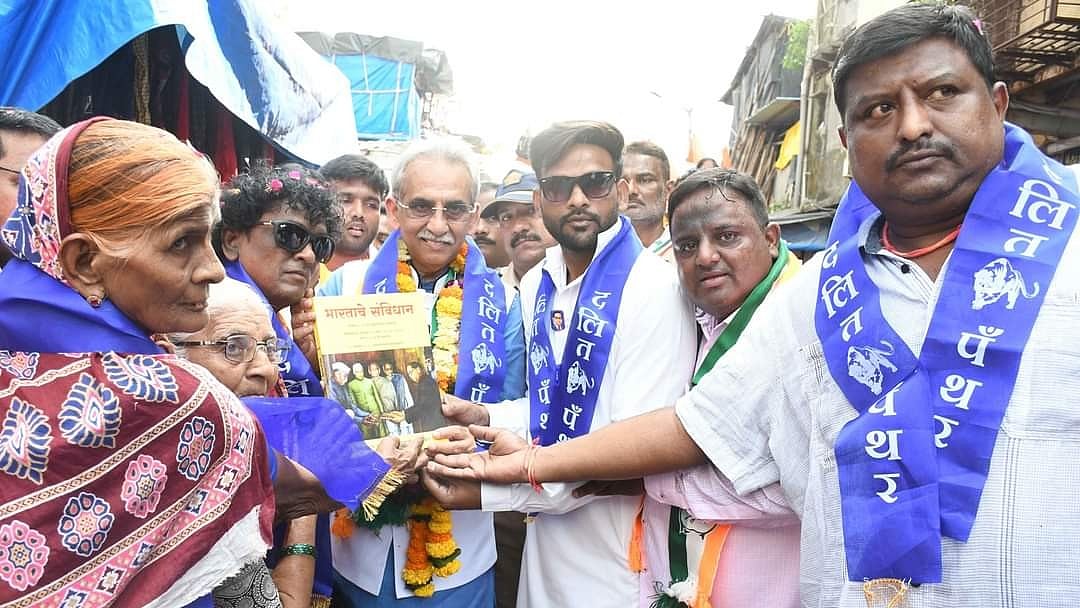When Graham Allison, Professor of Government at Harvard University, asked Lee Kuan Yew, the former prime minister of Singapore, whether India could ever compete with China; he replied bluntly, “Do not even talk of India and China in the same breath.” This was a conclusion he had reached after several decades of looking to and trying to bolster India as a counterweight to a rising China, that made many of its smaller neighbours in Southeast Asia nervous. Lee offered three main reasons which prevented India from mounting such a challenge, prime among which was in his words India’s “deep-rooted caste system” and the unwillingness of Indian elites to effectively manage with the conflicts that it generated. Lee’s disappointed judgement was foreshadowed in the warning given by Dr Ambedkar, one of the most astute political and social theorists of India, before Independence when he described democracy as “only a top dressing on an Indian soil, which is essentially undemocratic”.
Fast forward to last week when a video was widely circulated of a Brahmin man, Pravesh Shukla, urinating on an Adivasi man sitting on the side of the road, in the state of Madhya Pradesh. This elicited an outraged response, especially as the clip went viral on social media. Allegations were made that Shukla was a supporter of the local BJP MLA Kedarnath Shukla, with photographs being distributed of the two men being shown together. The BJP MLA denied knowing the man and said he was not a BJP member. In what many see as a damage control tactic the Chief Minister of Madhya Pradesh, Shivraj Singh Chouhan invited the Adivasi man to his home apologised to him and washed his feet as a sign of penance, also before cameras and ensured the images were also released for public consumption. As Madhya Pradesh is a state with a considerable Adivasi population of over 21% and the state elections are coming up later this year; the political optics behind such a move are not hard to miss.
Of the initial crime itself nothing more can be said that has not already been said. Such occurrences and the social discrimination that underpins them as well as the caste dynamics is sadly a reality in much of India. What has aroused a lot of comment and debate, is the CM’s gesture by way of recompense. Some argue that this is a genuine attempt at empathy. That it is not just a symbolic act but a real and powerful undermining of caste hegemony. That it strikes a strong blow against the prevailing social hierarchy. Are these claims true or accurate?
The problem with this line of thinking is that symbolism can be powerful only when it reflects a deeper reality or truth or when it is backed up by action. Without this content, it remains purely representational as a symbol only devoid of any substantive content. To this extent what is being offered here is merely a spectacle of justice, not justice actually being done. It runs the danger of recreating what the anthropologist Clifford Geertz termed as the “theatre state” where such spectacles of state power were displayed to maintain the appearance of sovereign power that masked the actual lack of real power and penetration of the state into society but sought to convince its subjects otherwise. This is not how a modern state should operate. Justice must be done at an institutional level and not just at a personal level. Moreover, it should not just be seen to be done, it must actually be done in practice. A visual spectacle can in no way be a substitute for the regular and institutionalised functioning of a working criminal justice system. Such a system, rather than relying on the majesty of executive power,needs to instil confidence in ordinary citizens that justice will happen in a transparent manner and as a matter of routine due to functioning institutions. Without needing the intervention or personal attention of a distant benign paternalistic power to interfere and manage the process, which it can, in any case, only do on a very limited scale. As such incidents are happening daily in many parts of India, one needs to ask, will the chief minister of every state be able to wash the feet of all victims of such crimes? Obviously not and to paraphrase Ambedkar again, no matter how many times such acts are done, caste Hindus will remain caste Hindus and Adivasis will remain Adivasis only. While the structure of caste discrimination remains intact; individual gestures will have little lasting significant impact.
To approve of the CM’s gesture as any kind of adequate recompensatory move is to hark back to a more feudal era. A time when the state was the proverbial “maa-baap” that was removed from the people and something distinct which would dole out justice from above in a top-down manner. This is no longer the case: we do not live in an era when the state is represented by a feudal ruler or a colonial state, but one where in a democracy it represents each and every one of us as participatory citizens and not obedient subjects.
It’s the failures of the Indian political elites to realise and accept this in eliminating caste discrimination and Indian democracy in being able to effectively articulate such aspirations fully that reflect Lee’s disappointed judgement where in his final analysis India would be perpetually consigned to be “the country of the future” — with that future never arriving and Ambedkar’s prescient warnings about the limitations of Indian democracy, which while delivering formal political equality, failed to deliver substantive social and economic equality.
A further unedifying sight is the way the issue has now become instrumentalised in an ugly visceral manner. Kuldeep Bharadwaj, National President of the Brahmin Mahasabha, was recorded in an interview saying, “What is the crime in urinating on his face? What harm does it cause?” It goes without saying that Brahmins are also a politically powerful caste in the Vindhya region of Madhya Pradesh where Sidhi is located.
Lastly, the way in which the victim himself was incorporated into this spectacle leaves much to be desired. In remedying such caste crimes maintaining the dignity of the individual is a key part of the process. None of this can be done when the victim is paraded contentiously in front of cameras to be on the receiving end of a gesture that he neither asked for and was clearly uncomfortable with being performed. True emancipation is something that can only be achieved at the end of the day by the marginalised for themselves; through increased collective self-awareness of their rights and proper place in society and through social mobilisation; it cannot be granted from on high by an erratic and irresolute state.
To quote Ambedkar once again, “We feel that nobody can remove our grievances as well as we can, and we cannot remove them unless we get political power in our hands.”
Conrad Barwa is a senior research analyst at a private think-tank, and a senior research associate at the Birmingham Business School












